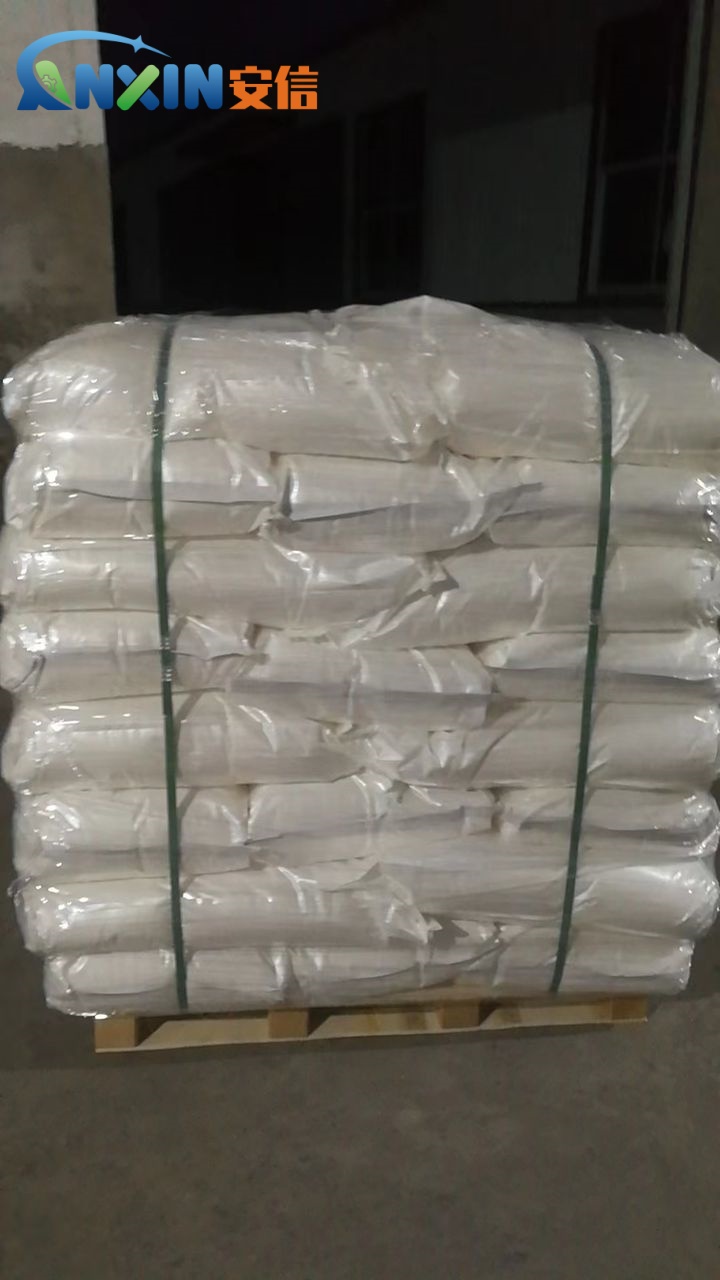Hydroxypropyl starch ether-HPS
Hydroxypropyl starch ether (HPS) is a chemically modified starch derivative that finds widespread use in various industries due to its unique properties. This compound is obtained by reacting starch with propylene oxide, leading to the substitution of hydroxyl groups in the starch molecule with hydroxypropyl groups. The resulting product exhibits enhanced water solubility, stability, viscosity, and film-forming properties compared to native starch.
1.Structure and Properties:
Hydroxypropyl starch ether possesses a complex structure resulting from the modification of the starch molecule. Starch is a polysaccharide composed of glucose units linked by glycosidic bonds. The hydroxypropylation process involves the substitution of hydroxyl groups (-OH) in the starch molecule with hydroxypropyl groups (-OCH2CHOHCH3). This modification alters the physical and chemical properties of starch, imparting improved characteristics.
The degree of substitution (DS) is a crucial parameter that determines the extent of hydroxypropylation. It represents the average number of hydroxypropyl groups attached to each glucose unit in the starch molecule. Higher DS values indicate a greater degree of modification, leading to significant changes in starch properties.
2.Hydroxypropyl starch ether exhibits several desirable properties:
Water Solubility: HPS shows enhanced solubility in water compared to native starch, making it suitable for various applications where water-based formulations are required.
Viscosity: The presence of hydroxypropyl groups imparts increased viscosity to HPS solutions, which is advantageous in thickening applications such as in adhesives, coatings, and construction materials.
Film-Forming Ability: HPS can form flexible and transparent films upon drying, offering barrier properties and moisture resistance. This property is valuable in applications such as edible films, coatings, and packaging materials.
Stability: Hydroxypropyl starch ether exhibits improved stability against heat, shear, and chemical degradation compared to native starch, expanding its utility in diverse environments and processes.
Compatibility: HPS is compatible with a wide range of additives, polymers, and ingredients, enabling its use in formulations with complex compositions.
3.Applications:
Hydroxypropyl starch ether finds extensive applications across various industries due to its versatile properties. Some of the key applications include:
Construction Materials: HPS is used as a rheology modifier, thickener, and water retention agent in cement-based products, gypsum plasters, tile adhesives, and mortars. It improves workability, adhesion, and mechanical properties of these materials.
Food and Beverage: In the food industry, HPS is employed as a stabilizer, thickener, and texturizer in products such as soups, sauces, dairy desserts, and confectionery items. It enhances mouthfeel, consistency, and shelf stability without affecting taste or odor.
Pharmaceuticals: Hydroxypropyl starch ether is utilized in pharmaceutical formulations as a binder, disintegrant, and controlled-release agent in tablet manufacturing. It facilitates tablet compression, promotes uniform drug release, and improves patient compliance.
Personal Care Products: HPS is incorporated into cosmetics, toiletries, and personal care products as a thickener, emulsifier, and film former. It enhances product texture, stability, and sensory attributes in formulations such as creams, lotions, and hair care products.
Paper and Textiles: In the paper industry, HPS is employed as a surface sizing agent, coating binder, and strength enhancer to improve paper quality, printability, and strength properties. In textiles, it is used as a sizing agent to impart stiffness and smoothness to fabrics.
4.Benefits:
The utilization of hydroxypropyl starch ether offers several benefits to manufacturers, formulators, and end-users:
Improved Performance: HPS enhances the performance of various products by imparting desirable properties such as viscosity control, stability, adhesion, and film formation.
Versatility: Its compatibility with other ingredients and materials allows for versatile formulations across multiple industries, enabling the development of innovative products.
Cost-Effectiveness: Despite its enhanced properties, HPS offers cost-effective solutions compared to alternative additives or ingredients, contributing to overall cost savings in formulations.
Regulatory Compliance: HPS meets regulatory standards for safety, quality, and environmental compatibility, ensuring compliance with applicable regulations and standards in different regions.
Sustainability: Starch-based derivatives such as HPS are derived from renewable resources, making them environmentally friendly alternatives to
petroleum-based additives. Their biodegradability further contributes to sustainability efforts.
hydroxypropyl starch ether (HPS) is a versatile and valuable ingredient with diverse applications across industries ranging from construction and food to pharmaceuticals and personal care. Its unique properties, including enhanced solubility, viscosity, stability, and film-forming ability, make it an indispensable component in numerous formulations. As industries continue to seek sustainable and high-performance ingredients, the demand for HPS is expected to grow, driving further innovation and applications in the future.
Post time: Apr-02-2024

